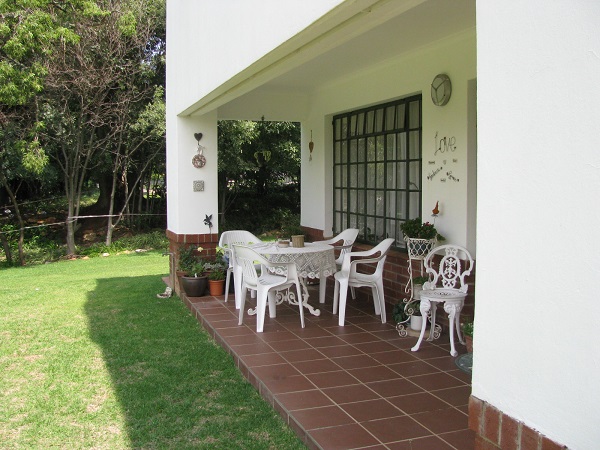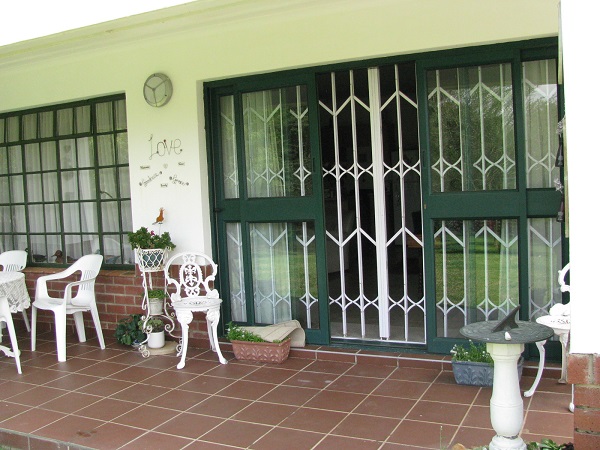So a mass grave of Scots slaughtered by Redcoats after the Battle of Culloden has been found.
How many bodies? Sixteen.
Sixteen?
In Johannesburg, that’s called “Friday Night”… and in Puerto Vallarta, that’s called “Before Breakfast”.

Sad things, events and people
So a mass grave of Scots slaughtered by Redcoats after the Battle of Culloden has been found.
How many bodies? Sixteen.
Sixteen?
In Johannesburg, that’s called “Friday Night”… and in Puerto Vallarta, that’s called “Before Breakfast”.
Via Insty comes this article which, in talking about the financial woes of the Guitar Center retail chain, exposes two deeper issues. Here’s the first:
Guitars don’t figure as heavily into chart-topping music as they once did, according to [Guitar Center boss] Gruhn. He ought to know. Over the years, his customers have included everyone from Paul McCartney, George Harrison and Eric Clapton to Neil Young, Vince Gill and Billy Gibbons. Those artists have left indelible imprints on the music landscape, all the way from Clapton’s burning solo on “Crossroads” to Harrison’s signature guitar part on “Daytripper.”
But these days? Well, things aren’t as guitar-oriented.
“Baby boomers are the best customers I’ve ever had. They’ve driven a lot of the guitar trends, but they are aging and many of them are downsizing their guitar collections,” Gruhn added. “This doesn’t mean that guitar sales are dying, but instrument sales in general are under stress.”
And from another guy in the business:
“Rock is almost dead,” he said. “It’s almost nonexistent. And with guitar there’s no almost one to look up to anymore – no one to get you to want to learn. I have three or four guitar students who are about 12 to 14 years old, and I told one of them she should find someone in her class to play guitar with. She said, ‘No one else plays the guitar, and people think I’m weird because I do.’ ”
As a one-time rock musician, I note this trend with sorrow, of course. As much as I detest the modern obsession with 1,000-watt amplifiers in cars, it does allow me to note that I seldom if ever hear loud rock music emanating from cars these days — in fact, now that I think of it, I can’t remember when last I did — because the market in sub-woofer bass played by sub-moron drivers appears to be dominated by rap music and its adherents, Wiggers and and their Black counterparts. (And this in our upscale neighborhoods in north Texas. South Chicago must be just one large cacophony of thumping drums.)
I suppose that the trend away from rock music (and its instruments) is just one of those things — just as in classical music, harpsichord music almost disappeared when the pianoforte became more popular in the nineteenth century. Of course, I think this sucks, but then again if it means fewer hair bands then it’s not altogether a Bad Thing.
What I hate is what the trend means: that popular taste is devolving towards the primitive — but then again, I suppose that classical music aficionados said the same thing when jazz and later rock music began to supplant classical music among young people. One could say that the classical folks had a point: Buddy Holly wasn’t exactly Beethoven; then again, in today’s world Heavy Z (or whoever) isn’t exactly Freddy Mercury. But on his worst day, Buddy Holly could write better music than the most accomplished rapper, who has to rely on plagiarism (a.k.a. “sampling”) to provide some kind of musical overlay to a soul-crushing, over-amplified rhythm section. Don’t even get me started on the differences between Queen’s Bohemian Rhapsody and G-Eazy & Halsey’s Him & I (errrr Him & Me or He & I, surely?).
Of course, another manifestation of the move away from classical- to rock music was that guitar pupils began to outnumber piano pupils. After all, the guitar is an easier instrument to play than the piano, just as manipulating a turntable and drum machine is easier than playing a guitar (as the article correctly notes). I mean, when Paris Hilton can be known as a good DJ… those whirring sounds you hear are Stevie Ray Vaughan and John Bonham spinning in their basements.
One could get all upset about how this is just another sign of the Dumbing Down Of Today’s Yoof, but I think this is more a factor of how music has traditionally been taught and learned — which brings me to the second issue raised by the article.
In Part 2 tomorrow, I’ll talk about that. But just to help people know what I’m talking about, here’s a guitarist:

Over at The Daily Wire, Matt Walsh asks:
Why Does The Media Care More About The Parkland Shooting Than It Ever Did About Las Vegas?
Well, that’s an easy one. While the Vegas shooter killed far more people than did the adolescent mope in Parkland, the Vegas victims weren’t children, ergo no outrage could be stoked up and turned into anti-gun hysteria. (And to be brutally frank, the fact that the Vegas victims were country music fans — i.e. more likely to be Deplorables or people from Flyover Country — made them just statistics as far as the Left was concerned. Conservatives weren’t going to be converted to the anti-gun side, but with children as victims… well, all bets were off.)
Also, the Vegas shooter’s motives were, and remain inscrutable because he’s dead: he was just a lone nutcase (and maybe a Democrat, just like Steven Scalise’s would-be assassin), and anything could have triggered him off to plan so large-scale a shooting. More to the point: every single gun he purchased and used for his mayhem was purchased quite legally, and no laws — existing or projected — could have stopped him (short of a wholesale gun ban and confiscation). And he was an adult, so none of the usual hooks was going to work. The only thing the media could get a fingernail on was “bump stocks” — something which keen gun guys knew about, but few others. Banning bump stocks was never going to ruffle anyone’s hairstyle, and even a failure to ban the stupid things couldn’t be used to tar the gun industry because it’s quite useless to rave about something used by about 0.00001% of the population.
But a screwed-up kid with an AR-15, and innocent chilluns gunned down in a school? Ooooh, small wonder the anti-gun brigades ordered a general mobilization, because there were so many hooks to hang gun control on: “underage” gun buying, “assault rifle” bogeymen — you name it, there was fodder for the anti-gun movement — which is why they were so quick to organize town meetings, parades and getting the Usual Suspects (Schumer etc.) to drone on and on about how Something Must Be Done No Matter What. And even better, the NRA could be used as a scapegoat much more easily for Parkland than for Vegas, How so? Consider these two statements:
“We should ban assault rifles!”
“No we shouldn’t.”
“Oh, so then you’re in favor of killing country music fans!”
…and:
“We should ban assault rifles!”
“No we shouldn’t.”
“Oh, so then you’re in favor of killing innocent schoolchildren!”
The first argument is risible, the second compelling.
That’s why the media and the anti-gunners have been pretty much shtum about the Vegas shooting, and hair-on-fire screaming about the Parkland tragedy. It really is that simple.
Yeah, I know it’s a cold-blooded and cynical rationale for using one and not the other to further an agenda and to use children as pawns rather than country music fans. But if there’s one thing we know about the Left — in any country — it’s that they pretty much define “cold-blooded and cynical”. The end, for them, always justifies the means.
In the meantime, let’s get the fire lit under the cauldron of oil so we can boil the little Florida fucker to death.
So… it’s going to be Zimbabwe II. That didn’t take long.
Every time you think that a country in Africa has a chance, they cock it up again. Idiots.
And for once, the comments in the article have it right.
One year ago last night, my wife Connie died of ovarian cancer.
In many cultures, there’s almost a mandatory mourning period of a full year after the death of a loved one, and I now know why. It has to do with anniversaries: “Oh, last year this time we were celebrating something together. This year… I’m doing it alone.” Those add up, and they take a toll on you as that horrible year drags on. But with the merciful passage of time — and it’s true: time does heal the worst of wounds — those little aches, those pangs of shared memories, fade and lose their sting. This year, I’ll remember an occasion from last year and this time, it will involve just me. Not as painful.
I have spoken many times about how my friends all over the world rallied around me and helped me get away from this most personal tragedy, so I’m not going to repeat any of it other than to say that they collectively gave me a reason to carry on living: not that I was going to do something foolish like cap myself, of course, but they got me to do things that helped dull the pain of memory, kept me busy, and above all made me realize that I still have so many things to live for. The alternative was for me to sit in a one-room garret and stare at the walls — which my friends, as they told me in no uncertain terms, were not going to allow me to do. Instead, once I’d taken care of the soul-destroying minutiae of death, I sold the house, traveled, and did the sorts of things which reminded me of the things I hadn’t been able to do before, but could now do. I did those things, and I will do again.
It’s called living. Life goes on after death and now, one year after that most profound tragedy from which I thought I’d never recover, I’ve come out from my period of mourning with renewed purpose, renewed hope for the future, and a renewed determination to live my life to its absolute fullest. That feeling, that intention, is not something that happened suddenly, or just this morning; it’s been a gradual process which began at some point (I have no idea when) and grew stronger and stronger as the year went on.
Now it’s been three hundred and sixty-five days since Connie died, and if you’d told me then that I’d be feeling the way I do today, I’d not have believed you.
Now, at last, I think I’m healed (although of course there may well be the occasional twinge of pain — I’ve felt a few just writing this post). All I needed was to get through the horrible anniversary to put the seal on it, and thanks to the boundless support from my friends, my family and my Readers, I made it.
Now it’s time for adventure, time to live again.
And if you’ll all indulge me, I’m going to continue to chronicle some of those adventures on these very pages. That is the real reason why I started blogging again — there’s no point in having an adventure when you can’t share it with anyone — and it’s only when I wrote this post that I realized it. (And by the way: a huge round of applause for Tech Support BobbyK, without whom I’d be snarled in incomprehensible Gordian techno-knot, and you wouldn’t be reading any of this.)
So stick around: I’m going to drink deeply of Life in the years to come, and you’re going to share it with me. Enjoy the journey, because I most certainly plan to.

In Memoriam:
Constance Mary (Carlton) du Toit
14 May 1958 – 3 February 2017

In an earlier post, I waxed somewhat rhapsodic about the changes I noticed in and around greater Johannesburg. But that’s not the whole story.
What has NOT changed about South Africa over the past thirty years is that you always have to differentiate between standard of living — which remains high, and has improved for countless millions of Black SA citizens since I left — and quality of life, which was bad when I left, and absolutely sucks now.
I challenge anyone in South Africa not to have been a victim of crime, or else not know someone in their family or a neighbor who has. (Even I fall into this category: my own elderly mother was once the victim of an armed home invasion in broad daylight, wherein she had to plead for her life. She was lucky in that they only emptied the place of all her valuables.)
Crime is everywhere. Every house is a fortress of high walls topped with barbed wire or electrified fencing, and every neighborhood has its own (mostly unarmed) security force because the “new” South African Police Service (SAPS, no kidding) are pathetic in their inadequacy and inefficiency. A 911-type call in the case of a violent crime results in a two-hour police response, if any at all. Petty crime such as a bag-snatching or pickpocketing gets an official shrug of the shoulders. Walking alone through even suburban shopping centers after dark is not just perilous, but foolhardy in the extreme — akin to doing the same in 1970s Bedford-Stuyvesant in New York.
In a city blessed with arguably the best climate in the world, you have to drive with your windows closed and the a/c going; and late at night, in just about every neighborhood, a red traffic light has to be treated like a yield sign.
Where I’m staying, in a gated compound, my friend lives in a very pretty townhouse which has this view:

…and has a covered patio:

Out there, you can eat al fresco about eleven months of the year, day or night. Here’s the rest of the picture, however:

That security gate is kept closed day and night, within a gated compound with 24-hour walking guard patrols.
Every store, even in a mall, has a security guard or two at the entrance, all office buildings have airport-style security at the entrances, and parking lots are filled with hi-viz jacketed “minders” who (supposedly) look after your car while it’s parked, for a small fee.
Johannesburg taxi drivers (more of which in another post) have adopted a typically-African response to the competition in the form of the Uber taxi service: if they catch an Uber driver picking up a fare on their “turf”, they shoot the Uber driver dead and “invite” the fare to get into their taxi instead.
That’s crime, and I’m only scratching the surface. Any current South Africans could give you still more, if you have the stomach to ask them — and I’m describing the situation in upper-middle-class Johannesburg suburbs. What it must be like in poorer areas like Soweto or Alexandria must beggar description.
Now let’s talk about government, or what passes for government.
Under apartheid, government was inefficient in a First-World kind of style: endless lines to (say) get a driver’s license renewed, surly bureaucrats behind the counters — anyone who’s recently been to the DMV will be aware of this phenomenon.
Now, the South African bureaucracy has become Third-World style: endless lines, but with no guarantee of a satisfactory resolution.
“Your license is still being processed.”
“When can I pick it up, then?” will be met with a shrug, and
“Next!”
There is no recourse, no appeal, no avenue to seek redress.
A friend of mine qualifies for a British passport, as both her father and her husband were British-born citizens. Unfortunately, the UK bureaucracy demands all sorts of SA “origination” documents (birth certificate, etc.), not all of which she has available. So she applied for the originals or certified copies thereof… nine months ago. And she has no idea when or if she will ever get them — calls to the various bureaus are met with complete ignorance of her request, despite the recital of a “request number” for tracking purposes issued when she made the original request.
Here’s another one. Most of the major highways around Johannesburg are toll roads. There are no toll booths or tolltags issued, however: cameras record the cars’ registration plates, and the owners are billed by mail. Another one of my friends has had over $300 of tolls billed to him, and he just ignores them. To this day, he’s never been harassed by the toll authority.
Another example: a law will soon be passed which makes homeschoolers responsible to the local education authority in terms of curriculum, hours of study, etc. (similar to that of places like New York state). Failure to register would, according to the law, result in an inspector calling on the homeschooler’s house, with the authority to arrest the delinquent parent and place the children in foster care. When I mentioned this to a schoolteacher over here, she just laughed. “The inspector will come out to the house, sleep in the car for a couple of hours and then report to his superior that the homeschooler sent in the registration documents, and they must have been lost in the bureaucracy. By the time the education authority finally reacts, the kids will be at university.”
In a country which used to supply power to the rest of sub-Saharan Africa, South Africa is facing rolling brownouts if not massive, week-long blackouts because the monopoly utility supplier ESCOM has run out of money, has little chance of getting more, and the likelihood of bonds being approved to pour yet more funds into the black hole of inefficiency [sic] is nonexistent, absent the intervention of a foreign state (step forward, China). The money, by the way, is earmarked for maintenance, which has been largely ignored for over twenty years, which is why the electricity supply is on its last legs. So where did the money go?
Silly rabbit, this is Africa. The presence of governmental corruption, which recently resulted in the removal of arch-kleptocrat Robert Mugabe from office just a few hundred miles north, is perhaps even worse south of the Limpopo River.
Getting anything done requires an endless series of “accommodations”, “considerations”, “gratuities” and all the other little euphemisms for bribes. This has percolated down to the lowest level: arrival at a driver’s license testing facility can result in the question: “Test or purchase?” Don’t even ask what happens at higher levels, where the stakes are higher and the sums of money exponentially larger than the R2,000 (about $150) for a driver’s license.
This, I think, is why the economy is improving: it’s because business owners simply ignore the bureaucracy wherever they can, betting (or hoping) that the governmental inefficiency will never catch up to them, or only catch up to them after they’ve made their money; and that they will either be able to pay the fines, or have hidden their money so well that they can survive State-mandated insolvency. Local lore abounds with stories of people who have closed their businesses just short of government inspection, and simply re-opened the businesses under a different trading name, on different premises a day or two later. And even that eventuality might well be avoided by a couple bribes of sufficient size to the right people.
Once again, I’m scratching the surface of the corruption issue — it’s what I’ve learned in only a single week here.
As I write this post, the ruling African National Congress (ANC) is holding elections for a new leader. The previous asshole, Jacob Zuma, was forced to resign because even for South Africa, his incompetence and corruption were too much to bear. His potential successor will be either his ex-wife — rumored to be worse than he is — and Cyril Ramaphosa, a one-time union leader and socialist whose election will probably herald a boom in the Johannesburg Stock Exchange (JSE) and a renewal of confidence from the rest of the world in South Africa’s future. (A one-time socialist is viewed as a potential savior of a capitalist economy. Go figure. But hey, the same could be said for Ossi Angela Merkel; and look how that’s turned out.)
I would like to bet on old Cyril getting the job, but my natural cynicism makes me think that Nkosazana Dlamini-Zuma will win it in a walk.
Because in any situation where the choice is between horrible and unspeakable, Africa always wins.